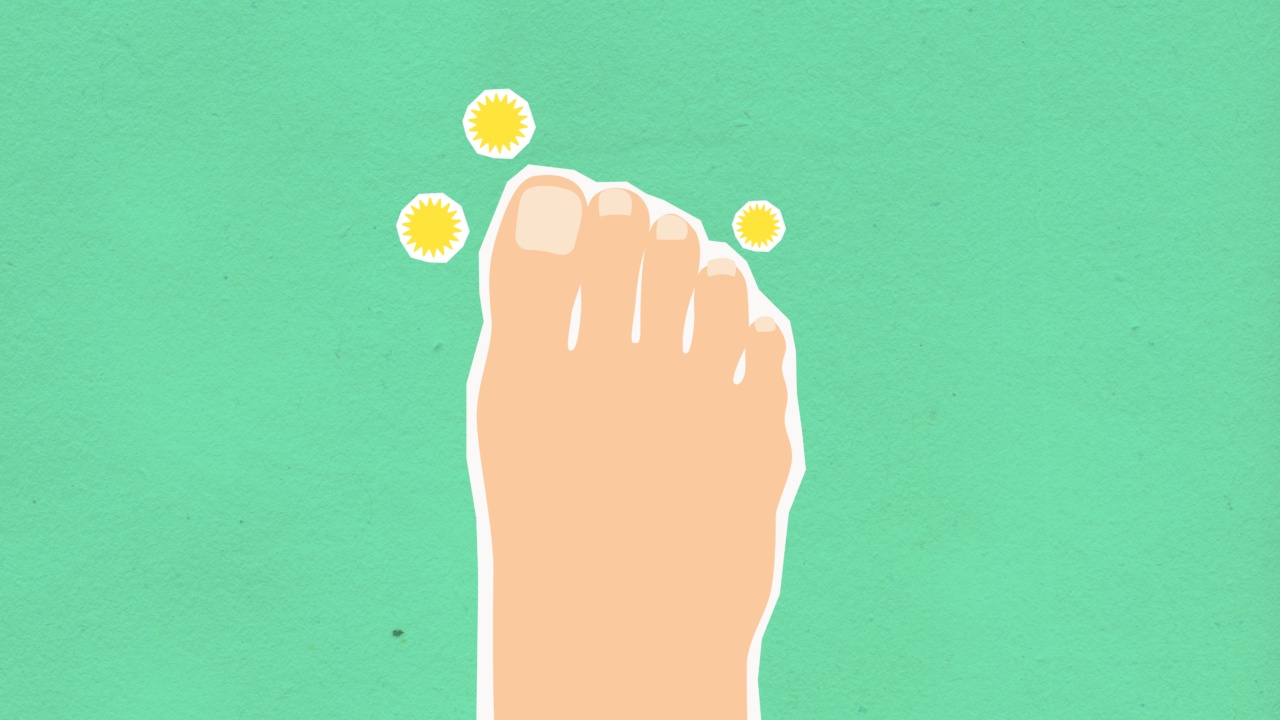Fungal infections can affect various parts of our body, including the feet and genitals. These infections are not only uncomfortable and embarrassing but can also be difficult to eliminate once contracted.
However, with some preventive measures and proper care, you can protect your feet and genitals from fungal infections. In this article, we will explore some useful tips and tricks to safeguard these areas from fungal infections.
The Importance of Protecting Your Feet
Our feet are vulnerable to fungal infections due to various reasons. They are often confined in tight and damp spaces such as shoes and socks, providing a breeding ground for fungi.
Additionally, public areas like swimming pools, gyms, and locker rooms can also harbor these infectious organisms. Here are some essential tips to protect your feet:.
1. Maintain Good Hygiene
Keeping your feet clean and dry is crucial in preventing fungal infections. Wash your feet daily with warm water and mild soap, paying extra attention to the areas between your toes.
After washing, make sure to dry your feet thoroughly, especially the spaces between your toes.
2. Wear Breathable Footwear
Choose shoes and socks made from breathable materials to allow proper airflow, minimizing moisture buildup. Avoid tight, non-breathable shoes that trap moisture and promote fungal growth.
Opt for open-toed shoes or sandals whenever possible, especially during hot and humid weather.
3. Change Socks Regularly
Moisture-absorbing socks can be helpful in reducing sweat and keeping your feet dry. Change your socks daily, especially if they become damp or sweaty. This will help prevent fungal growth and maintain good foot hygiene.
4. Use Antifungal Powders or Sprays
Apply antifungal powders or sprays on your feet and inside your shoes to help keep fungal infections at bay. These products can help absorb excess moisture and inhibit the growth of fungi, reducing the risk of infection.
5. Avoid Walking Barefoot in Public Areas
Fungi thrive in warm and moist environments, making public areas such as swimming pools, showers, and locker rooms potential breeding grounds.
Minimize your exposure to these areas by wearing flip-flops or waterproof sandals and avoid walking barefoot whenever possible.
6. Trim Your Toenails Properly
Trim your toenails regularly and avoid cutting them too short or rounding the edges. This can help prevent ingrown toenails, which can create an entry point for fungal infections.
Additionally, make sure to use clean and disinfected nail clippers to avoid spreading any potential infections.
7. Choose the Right Nail Salons
If you enjoy getting pedicures or manicures, ensure that the nail salon maintains strict hygiene practices. Make sure they disinfect their tools properly and do not reuse files, buffers, or pumice stones between clients.
This will significantly reduce the risk of contracting fungal infections.
Protecting Your Genitals from Fungal Infections
Fungal infections in the genital area can cause discomfort and distress. These infections can be transmitted sexually, through poor hygiene, or by using contaminated items. Here are some tips to protect your genitals:.
1. Practice Safe Sex
Using condoms during sexual intercourse can help reduce the risk of sexually transmitted fungal infections. It acts as a barrier and prevents direct contact with infectious organisms.
Additionally, practicing good genital hygiene before and after sexual activity is essential.
2. Wear Loose-Fitting Underwear
Tight underwear made from non-breathable fabrics can create a warm and moist environment, which is favorable for fungal growth.
Opt for loose-fitting undergarments made from breathable materials like cotton to allow proper airflow and reduce the risk of infections.
3. Maintain Personal Hygiene
Wash your genital area gently with mild, unscented soap and warm water. Avoid using harsh soaps, douches, or feminine sprays, as these can disturb the natural balance of your genital region and increase the risk of fungal infections.
4. Dry Thoroughly
After showering or using the bathroom, make sure to pat your genital area dry with a clean towel. Moisture promotes fungal growth, so keeping the area dry is crucial in preventing infections.
Avoid using shared towels to minimize the risk of contamination.
5. Change Out of Wet Bathing Suits or Workout Clothes
After swimming or exercising, change out of wet bathing suits or sweaty workout clothes as soon as possible. This will help prevent moisture buildup and also reduce the risk of fungal infections in the genital area.
6. Avoid Sharing Personal Items
Do not share personal items such as towels, underwear, or razors, as they can harbor fungi and spread infections. Each individual should have their own dedicated items to minimize the risk of cross-contamination.
Seeking Medical Assistance
If you suspect that you have a fungal infection in either your feet or genitals, it is essential to seek medical assistance for an accurate diagnosis and appropriate treatment.
The healthcare professional may prescribe antifungal medications in the form of creams, oral medications, or other suitable treatments.
Conclusion
Fungal infections can cause discomfort and inconvenience, but with proper precautions, you can protect your feet and genitals from these unwanted infections.
By practicing good hygiene, wearing breathable clothing, and taking necessary preventive measures, you can significantly reduce the risk of fungal infections. Remember, maintaining personal hygiene and seeking timely medical assistance when needed are essential in preventing and treating fungal infections effectively.





























